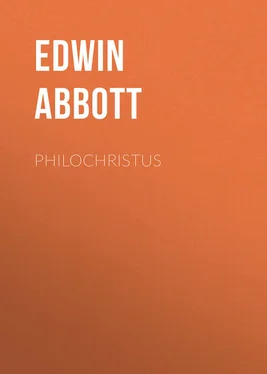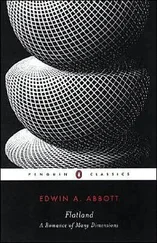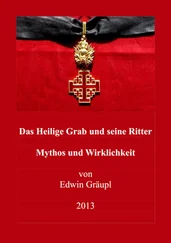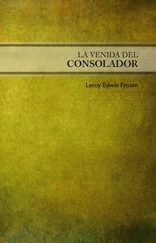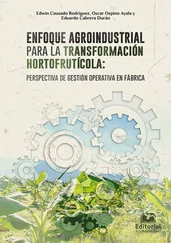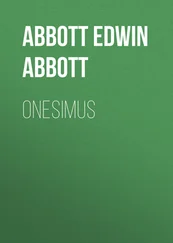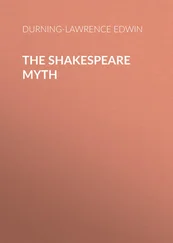Edwin Abbott - Philochristus
Здесь есть возможность читать онлайн «Edwin Abbott - Philochristus» — ознакомительный отрывок электронной книги совершенно бесплатно, а после прочтения отрывка купить полную версию. В некоторых случаях можно слушать аудио, скачать через торрент в формате fb2 и присутствует краткое содержание. Жанр: foreign_antique, foreign_prose, на английском языке. Описание произведения, (предисловие) а так же отзывы посетителей доступны на портале библиотеки ЛибКат.
- Название:Philochristus
- Автор:
- Жанр:
- Год:неизвестен
- ISBN:нет данных
- Рейтинг книги:5 / 5. Голосов: 1
-
Избранное:Добавить в избранное
- Отзывы:
-
Ваша оценка:
- 100
- 1
- 2
- 3
- 4
- 5
Philochristus: краткое содержание, описание и аннотация
Предлагаем к чтению аннотацию, описание, краткое содержание или предисловие (зависит от того, что написал сам автор книги «Philochristus»). Если вы не нашли необходимую информацию о книге — напишите в комментариях, мы постараемся отыскать её.
Philochristus — читать онлайн ознакомительный отрывок
Ниже представлен текст книги, разбитый по страницам. Система сохранения места последней прочитанной страницы, позволяет с удобством читать онлайн бесплатно книгу «Philochristus», без необходимости каждый раз заново искать на чём Вы остановились. Поставьте закладку, и сможете в любой момент перейти на страницу, на которой закончили чтение.
Интервал:
Закладка:
Many things also in the traditions of the Wise seemed to me not worthy of wise men, nor even of honest men. I had joined myself to a certain brotherhood (who all, or almost all, were Pharisees), such as bound themselves to observe the Law with special strictness, and in particular to pay tithes of all things. The brotherhood was called Chabura, and each of the brethren was called a Chaber. Now it was the custom of us Chaberim to meet on the Sabbath day at one another’s houses that we might sup together. But the space between our houses often exceeded two thousand paces, which distance was not to be exceeded by a man journeying on the Sabbath day. Therefore to a plain man it would have seemed that we could not sup with one another on the Sabbath day and at the same time obey the Law. But the Scribes were otherwise minded; and many of them, yea even of the strictest sect, escaped from the Law after this fashion. On the evening before the Sabbath, they would place small pieces of meat, distant two thousand paces one from another, on the road whereon they desired to journey. Where a man’s meat is, said they, there is his home. So when they were come in their journeying to the first piece of meat, they would say, “Now I am at my home and may walk yet another two thousand paces.” And so, walking from this home to other homes if need were, they walked as far as they listed. This mixing of distances they called erûbh , or “mixture;” and the device remaineth unto this day.
Again, if a man’s ox were dying on some holy day, and the owner thereof desired to kill it; he was forbidden. But if he slew the beast and then took of the meat and ate thereof, yea, even though it were a piece of flesh no bigger than an olive, and if he said, “I slay the beast to provide a necessary meal,” then he was held excused. Likewise, though a man might not buy from a butcher on the Sabbath, yet if he abstained from mentioning the number or weight of the things bought, and the sum of money to be paid, then he might buy as much as his heart desired and be held blameless. Thus he would say, “Give me a portion, or half a portion of meat,” and the butcher would give it; and the buyer would go away, paying naught. But next day the money would be paid. And this was called not a sale, but a gift. After the same manner they did away with the Law which remitteth debts in the Sabbatical year. On the day of payment the creditor would come (such was the ordinance of the Scribes) and say, “In accordance with the Sabbatical year I remit thee the debt.” Then the debtor was bound to reply, “I nevertheless wish to pay it,” and the debt was paid, and the Law was made of none effect.
About the thirteenth year of the Emperor Tiberius, it came to pass that I (being now thirty-three years old or a little more) discoursed with a Greek proselyte concerning the Law. He said to me that it seemed to him better to disannul such ordinances as were not convenient (just as a man might prune a too luxuriant vine); and not to say, “I will obey the ordinance, but I will make my obedience the same as disobedience.” His words pleased me; but when I reported this saying to some of the Scribes my friends, they with one consent rejected it. Abuyah the son of Elishah said, scoffing at my doubts, “The Law drowneth them that cannot swim.” Then said I (repeating a certain saying of the Greek), “But water groweth bad if it be kept long in one vessel.” But he straightway put me to silence saying, “Is this likewise the case with the Law? Nay, it is like unto wine which groweth better as it groweth older.” Jonathan the son of Ezra also added in a gentle voice, “My son, thou knowest the saying of the Elders, the first of the sayings of the Wise: Be deliberate in judgment, and raise up many disciples, and make a fence to the Law. But thou, O my son, wouldst fain pull down fences. But if we begin to destroy a part of the Law, who shall stay the hand of the destroyer? And in the end we shall be even as the Gentiles, which have no law. Is it not better to be too careful rather than to be too careless? Is it not better to have too many fences rather than to have too few? For to what is the matter like? Even to a man watching a garden. If he watch it from without, it is all watched. But if he watch it from within, the part in front of him is watched; but the part behind him is not watched. Be thou therefore careful to go in thine obedience even beyond the things which the Law requireth at thy hands; and watch the Law not from within, but from without.”
There seemed much wisdom in the sayings of Jonathan, and I knew not what answer to make. For if to transgress the Law, even in the smallest matter, was to fall into destruction, then it seemed wise to fence round the Law, even as a man would fence round a pit; and not to suffer the unwary to go near, and peradventure to stumble, and so to be swallowed up. Yet I could not but perceive that it was not well for men thus to resort to the Law and to the Traditions as to a sacred oracle, even on those occasions and in those matters wherein the voice of the Lord speaking unto the heart saith clearly, “This is right, do this. This is wrong, do not this.” For thus it must needs come to pass that men would pervert even the Law to the contradicting of the voice of the Lord. And so indeed it was with us. As, for example, the Law forbade fornication, neither did it permit us to marry a woman with intent to divorce her; but one of the Traditions, making the Law of none effect, told us that “If a man first tell her that he is going to marry her for a season, then it is lawful.” Other Traditions sinned yet more grievously in the cloaking of sins and impurities. Hence also the duties of children to parents (albeit upheld indeed by the better part of the Wise) were by many diminished, or even made of none effect.
Now I have heard certain Romans say that in their Law they also use the same devices to observe the letter and to break the spirit. But the mischief was, that our Law was not as the laws of the Gentiles, which concern naught save lands, and houses, and slaves, and the like, and which have not to do with the souls and spirits of men. The Gentiles could break the letter of their laws and sin not: for what sin was it to make a slave free by feigning to sell him, or, in disputing about a farm, to treat of a clod as though it were the farm? But our Law had to do with the supreme God, the Maker of all things, the All-seeing (blessed is He). Therefore to observe the letter and to break the spirit of His Law seemed to be a profaning of His Holy Name. Now I had been trained up from my earliest years to dread the pulling down of the fences, having this precept, as it were, engraved and charactered in my memory, “Whoso pulleth down a hedge a serpent shall sting him:” and I had been taught to prefer Sinai, that is, the teacher of the Law, even to an “uprooter of mountains,” that is, to a teacher which hath understanding to remove all manner of offences and stumbling-blocks from the path of the weak ones. Howbeit, at times, after discourse with the Greek proselyte whom I mentioned above, there would arise in my heart this thought, that when the words of the Law seemed to contradict that which was right, then we ought to go into the presence of God and to say, “Thou, O God of righteousness, art righteous altogether, neither can it be Thy pleasure that we should be unrighteous”; and again, “Thou art a God of truth, neither can it be Thy will that we should lie with our hands in Thy presence. Therefore permit us in this case to break Thy Law. For Thy righteousness is greater than Thy Law.” But the Scribes would not so much as listen to such words as these; for they said that scarce even a prophet durst speak so exceeding boldly. But when I asked them whether it might be that a prophet should arise in Israel, then the most said that it was not possible; for the Shekinah and the Holy Spirit had departed from Israel when the first Temple had been destroyed. Thus my words were an abomination unto my teachers, so that I hid my thoughts in my heart: but it was pain and grief to me.
Читать дальшеИнтервал:
Закладка:
Похожие книги на «Philochristus»
Представляем Вашему вниманию похожие книги на «Philochristus» списком для выбора. Мы отобрали схожую по названию и смыслу литературу в надежде предоставить читателям больше вариантов отыскать новые, интересные, ещё непрочитанные произведения.
Обсуждение, отзывы о книге «Philochristus» и просто собственные мнения читателей. Оставьте ваши комментарии, напишите, что Вы думаете о произведении, его смысле или главных героях. Укажите что конкретно понравилось, а что нет, и почему Вы так считаете.
